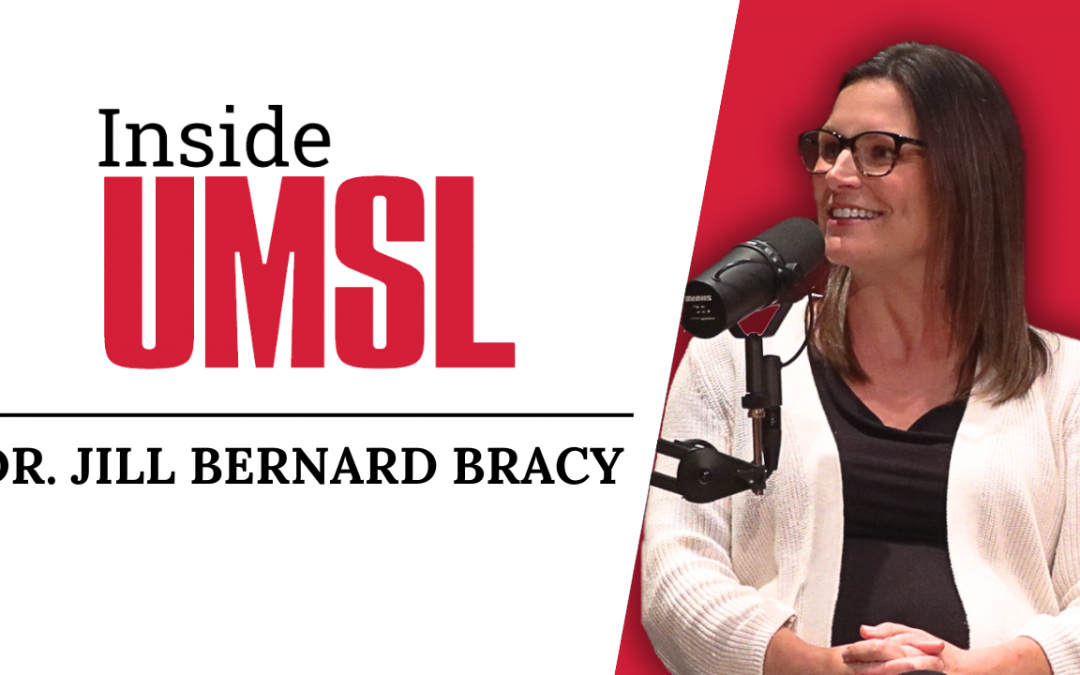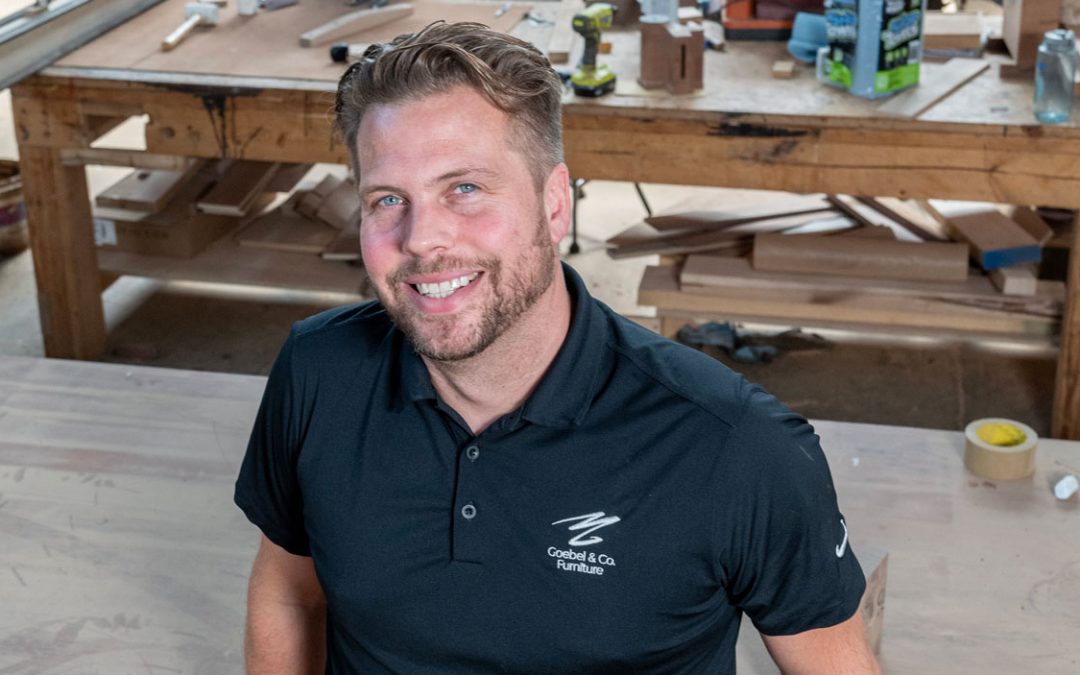
Kellyn Holliday shows off some fresh vegetables from the “Garden of Hope” outside her office at the Housing Authority of St. Louis County. Holliday, a 2014 BSW graduate who works as the organization’s public housing services coordinator, helped start the garden to give public-housing clients another community food source. (Photo by August Jennewein)
University of Missouri–St. Louis Associate Teaching Professor Linda Wells-Glover says that most of her undergraduate social work students view research as something compulsory rather than enjoyable.
It’s something that’s beneficial, something they have to engage with in order to earn their degrees and find employment after graduation, but it just doesn’t come as naturally as going out into the field and getting a basis in experiential learning.
Which is why Kellyn Holliday still stands out in Wells-Glover’s mind.
“She was like, ‘I love research,’” Wells-Glover said. “What? Really? OK!”
Holliday, who graduated from UMSL with her BSW in 2014, has found a way to combine her interests in research and affordable housing solutions for the past 3 1/2 years at the Housing Authority of St. Louis County.
She serves as the public housing services coordinator but is transitioning into a data management role with the organization’s Section 8 department, which deals with the federally funded housing-choice voucher program for low-income and elderly residents, as well as residents with disabilities.
In her new role, Holliday is mainly responsible for data collection, program evaluation, grant reporting and referring clients to other agencies when necessary. She spends a lot of time scouring spreadsheets.
“Do not be afraid of the numbers: They will inform your practice,” Holliday said. “They will tell you how to do the things you do. You just can’t work on ‘because I think so’ anymore. We have to work on what we know.”
That’s the gist of what Holliday tells current prospective social workers at UMSL when Wells-Glover invites her back to campus to speak to classes. It’s also what Holliday imparts as an adjunct instructor at UMSL for courses in Research Design in Social Work – like the one she took with Dean Sharon Johnson as an undergraduate – and Human Behavior in the Social Environment, which she is teaching this fall. And what she tries to emphasize for the practicum students she hosts at the housing authority: two from social work this semester and, previously, three from the College of Education.
The numbers are your friends. So is UMSL.
“When I got to UMSL, I felt a sense of family and a sense of connection,” Holliday said. “I always tell people that if you want that feeling that you’re part of a group, that feeling where you’re learning together as one, where you have instructors who really support you, UMSL is the place to be.”
Holliday started off in higher education at Tennessee State University, then moved on to St. Louis Community College–Florissant Valley before finding her way to UMSL. She knew she was interested in helping people find housing – she already had experience working in homeless shelters – and was looking for an institution that aligned with her goals.
At UMSL, she found a home.
“Kellyn is incredibly intelligent. She was very engaged in class,” Wells-Glover said. “She was one of those people that was already doing social work even though she hadn’t formally gotten her degree. I just remember her being able to add a lot of really important experiences to our class discussion. I remember her talking in class about her clients that she served and how much she really wanted to make a difference.”
Holliday served her UMSL practicum at the Northview Village nursing home on Kingshighway, helping conduct research on the mental health floor. After graduation, she completed her MSW at Washington University in St. Louis. While there, she met housing authority Executive Director Susan Rollins. She started interning, and before long, she was a full-time employee.
Since then, in addition to her regular job duties, Holliday, Rollins and other employees started a “Garden of Hope” for the community behind the housing authority main office on Natural Bridge Road. They grow fresh vegetables for clients who don’t always have consistent access to healthy foods.
In 2015, Holliday worked with Rollins to start a summer reading program for children aged 5 to 12 that live in public housing, with the goal of getting them to read at or above their grade level. They draw a group of 15 to 20 students each year, and the program proved popular enough that they extended it to serve kids during the school year.
Holliday said the housing authority prides itself on being a full-service agency for its clients.
“I feel like I’m part of a team that’s trying to really help with the housing situation in St. Louis,” Holliday said. “It’s one of the most dire situations out there. In my new role, I’m going to definitely try to create more of an alliance between the housing authority and other social service agencies to make sure we can get people connected and keep them in housing, and then hopefully help people transition off of these programs into their own houses. That’s what I love about people coming here.”














